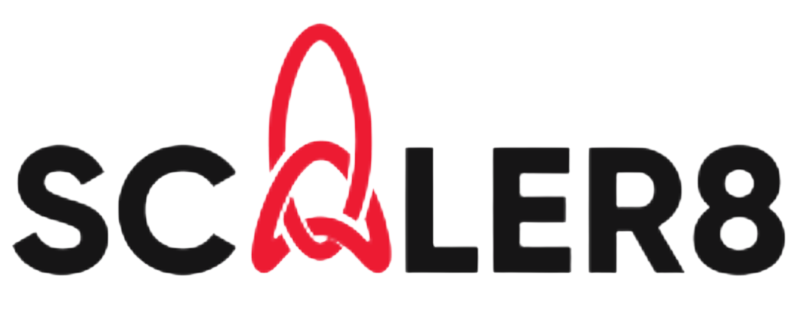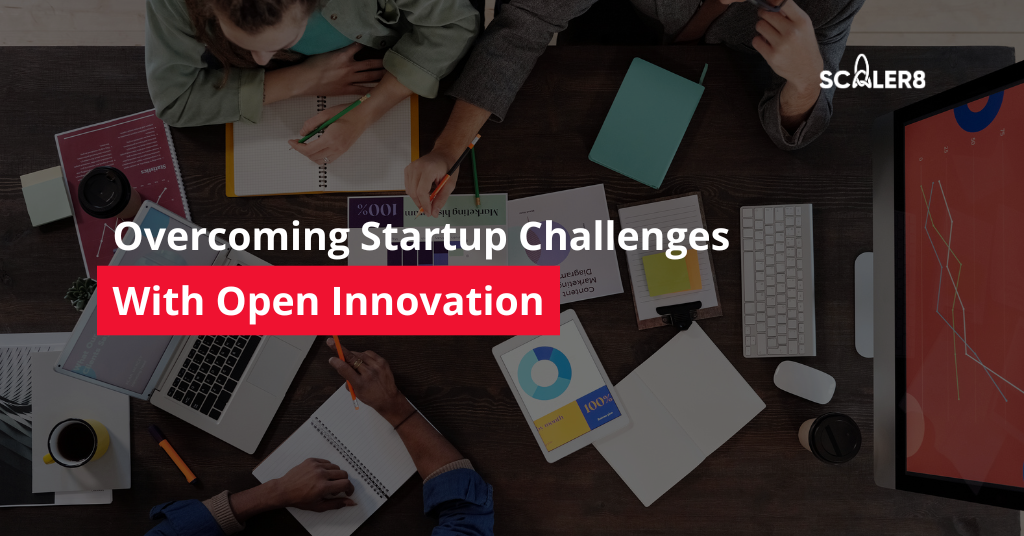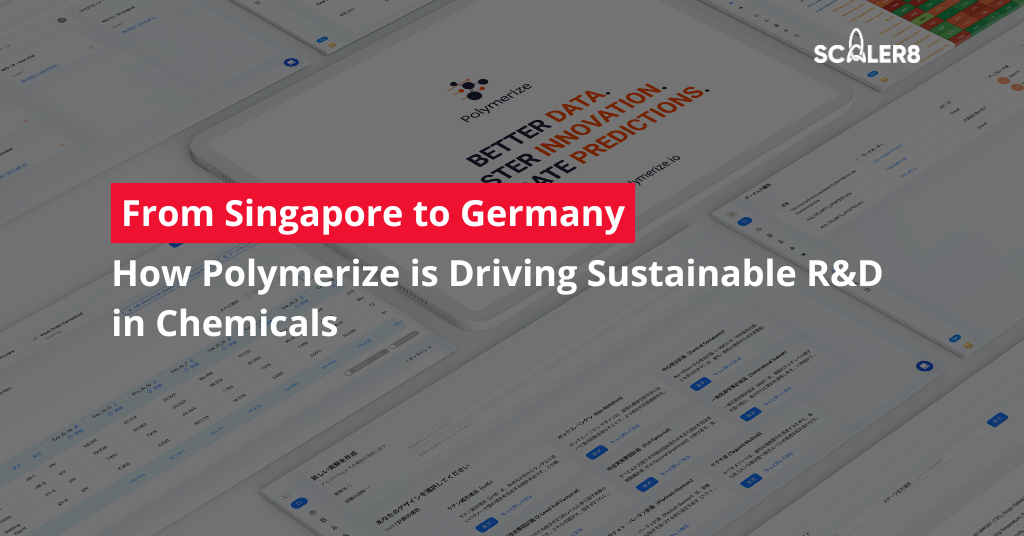It’s no secret that smart technology continues to revolutionise the way we live, work, and play. The internet-of-things (IoT) has come a long way in recent years, with seemingly limitless applications for both consumer and industry, from the latest wearables and smart home devices to large-scale smart city applications like smart grid management and manufacturing. Analyst firm IDC predicts there will be 41.6 billion connected IoT devices by 2025, as industrial and automotive players move to streamline processes and reduce costs, and smart home and wearable technologies continue to see traction across the world.
Germany’s rich history in manufacturing and product innovation creates market opportunities and makes it well-placed to lead in Europe and globally as a hotbed for smart technology. Its vast network of specialised digital hubs located across the country bolster connections for collaboration between startups and enterprises, providing a good entry point for both local and foreign startups. The country’s adoption of smart technologies is further aided by the country’s recent 5G rollout, which is expected to connect the county’s 16 state capital cities.
But what are the key trends shaping the smart technology ecosystem in Germany? And what does this mean for Singapore smart tech startups looking to make inroads into this exciting market for their business expansion plans? Read on to find out!
Germany is Silicon Valley for Industry 4.0
Home to well-known manufacturing behemoths like BMW, Bosch, Siemens, GE, and Boeing, Germany is recognised as a global leader committed to embracing the fourth industrial revolution, making it an attractive location for overseas expansion. Fuelling much of the country’s IoT adoption, Germany’s ‘Industrie 4.0’ aims to drive manufacturing in the country forward by opening a path to automated, digitalised, and connected industry production, to enhance efficiency and productivity across all industries.
Industry 4.0 in Germany is driven by the country’s Mittelstand enterprises (small and medium-sized businesses) which make up 99% of firms in the country. And while the impact of the COVID-19 pandemic has hit the industry hard, according to recent research from McKinsey, the outlook for this sector still remains favourable, with social distancing increasing demand and market opportunities for robotics and automation tools, while driving the need to complete digital transformations in weeks rather than months or years.
A hotbed for cross-sector collaboration on industrial transformation
“For engineering companies, Germany is one of the best places to be in Europe and the easiest place to do business.” – Attonics Systems Co-Founder and CEO, Philipp Von Pein
Originally launched in 2011, Germany’s Industry 4.0 roadmap has become institutionalised through Plattform Industrie 4.0, which serves as a central point for collaboration between the government, companies, associations, unions, and researchers. This unparalleled engagement and partnership with a broad spectrum of stakeholders has enabled Germany to xreate market opportunities to attract investors make a concerted push towards automated, digitalised, and connected industry production across all sectors.
For Singapore-based Industry 4.0 startup dDriven, the ability to work and collaborate with major manufacturers in Germany was one of the main factors that allowed the team to gain market access. Realising that disconnected manufacturing costs businesses billions of dollars annually, the startup helps manufacturing plants leverage their IT, operational technology (OT), and IoT data holistically. dDriven’s platform, UNLSH, creates a central foundational digital infrastructure that links together all of a firm’s data, analytics, and operations.
“For a startup like ours, validation from big players is extremely important and this is something we have already achieved in Asia. We want to be in the European market and replicate this success, and Germany is the ideal place to start. Given its reputation as a major manufacturing and technology hub, validation in the German market would essentially open up doors for us across Europe,” said Partha Ray, Founder and CEO of dDriven.
This sentiment is also echoed by National University of Singapore spin-off Attonics Systems, which offers a first-of-its-kind microspectrometer which converts the complex design of conventional spectrometers into a single chip. “For engineering companies, Germany is one of the best places to be in Europe and the easiest place to do business. It has a great infrastructure and as a big market, it’s not as bureaucratic as people think, and with Scaler8, you have great contacts, which helps a lot,” said Attonics Systems Co-Founder and CEO, Philipp Von Pein.
Growing public and private investment focus
As a key component of Germany’s High Tech 2020 Strategy, the government established a €200 million state-backed venture capital fund in 2019 to drive the transformation of the industrial IoT sector and create attractive market opportunities. Much of this investment has gone towards securing Germany’s position as a leader in deep technologies, spanning artificial intelligence to robotics, blockchain, advanced material science, photonics and electronics, biotech, quantum computing, and much more. From the private sector, Germany’s industrial tech startups have received €962M in VC investment since 2015 – the highest in Europe – and that number is set to grow even further, with local VC firms such as La Famiglia launching specialised funds for startups in this sector. In addition to this, most of Germany’s major players now have their own corporate venture arms setup to scout startups; offering funding in return for much-needed innovation.

Germany’s smart & green city vision
Apart from Germany’s vision for Industry 4.0, the country is also charging ahead with various smart city initiatives and pilot schemes aimed at enhancing urban liveability and prosperity, from transforming inner-city transportation with intelligent cars, smart traffic, and street lighting, to smart grid, smart homes, and more. The German Federal Government’s Smart City Model Projects Program has funded €820 million in 32 projects to-date, to drive the development and implementation of integrated smart city strategies that can be adapted by other municipalities.
Today, cities are the main cause of climate change, which in Germany is driving city planners to explore new technologies to achieve long-term development goals. And having experienced reduced environmental pollution brought about by having fewer vehicles on the road due to COVID-19, Germany’s already healthy appetite for greener and more sustainable smart solutions has been intensified further, creating more openings for innovative startups with green solutions to find a place in Germany’s sustainable future.

Germany is the leading European market for smart home products
For foreign startups operating in the Smart Home space, starting a business Germany is an exciting prospect. Home to well known smart home product providers like Siemens, Bosch, Miele, and MOBOTIX, Germany is considered a mature market when it comes to smart home technologies. According to Statista, Germany’s smart home market is predicted to see an annual growth rate of 14.3% (2000-2025), penetrating 42.6% of households by 2025, making Germany the leading market for smart home products in Europe.
In fact, a survey from German IT Association Bitkom found that 40% of people in Germany are already using smart home applications in their everyday lives, with the majority of users interested in technologies that enhance their quality of life. 65% also expressed the desire to have more security in their smart applications. This presents market opportunities for Singapore startups developing solutions in this space, particularly those focusing on the secure end-to-end networking of devices that can be controlled via a common platform.
Tapping in on this trend, German companies like BSH Startup Kitchen are actively looking to partner with international startups in this area, developing home appliance products for both global and local German brands. As the Venture Client unit of the major market leader BSH Home Appliances Group, the firm focuses on working with innovative startups offering services for the future home. Speaking at a webinar hosted by Scaler8 and SGInnovate on the adoption of Industry 4.0 solutions in Germany, Dr Ion Hauer, Venture Partner at BSH Startup Kitchen, said: “I strongly believe that large corporations do not have to invent everything themselves, we leave that to the experts.”
For companies like Attonics Systems, the maturity of the German smart tech market is a key selling point when considering a country’s market access viability. With almost unlimited applications for its microspectrometer, spanning cosmetics and personal care products, smart home appliances, and industrial quality control, the firm is keen to break into the German market, which they feel is the place to be for startups seeking product validation in smart homes and appliances. “In Asia, we still have to do a lot of education as spectrometry is relatively new. But in Germany, it’s a more established technology; they have more ideas and feedback to give in terms of what the best product-market fit can be,” said Philipp von Pein from Attonics Systems.
World-class education & talent makes Germany’s smart aspirations possible
Given Germany’s aspirations in smart tech, it would be remiss not to mention the country’s wealth of universities and research institutes dedicated to fostering smart innovation and talent, which make these ambitions possible. Organisations like the Fraunhofer Institute help researchers develop their ideas into viable business models, while the Strascheg Center for Entrepreneurship at the Munich University of Applied Sciences helps technical students to take an entrepreneurial approach to bringing their ideas to market. Validated products allow for overseas market access opportunities down the line. Germany’s largest technical university – RWTH Aachen University – houses the European 4.0 Transformation Center and Industry 4.0 Maturity Center, playing a key role in research and advisory on digital transformation for companies. Educated and skilled talent in Germany is abundant, which spells good news for foreign startups interested in overseas business expansion in the country.

Advice for Singapore smart tech startups
“Trying to enter a new geography all by yourself has a lot of risk associated with it. A main challenge for us is that we do not have a strong network in Europe, so we are very happy to work with a reputed partner like Scaler8, who can use their network to give us the visibility that we need.” – dDriven Founder and CEO, Partha Ray
1. Singapore startups can help Germany overcome its smart tech challenges
The bottomline for international startups considering starting a business in Germany is to keep in mind that despite more than a decade of investment in Industry 4.0 and smart technologies from the German government, corporates and investors, there is still a long way to go before the country’s smart nation vision is fully realised. Andreas Radke, Executive Consultant at mSE Solutions and mentor at Scaler8, notes that although a lot of foundational work towards digitalisation and automation has been done, the system is not yet fulfilling its full potential, so companies and employees continue to fall back on conventional ways of working, like Excel and email. This, he says, “creates a lot of opportunities to contribute as a startup.”
2. Standardisation can help you scale
According to Dr Hauer from BSH Startup Kitchen, a major challenge for smart tech startups when it comes to company expansion is their ability to standardise their platforms and technologies across borders, avoiding the trap of extensive customisation and product redevelopment for new markets which can impede their ability to scale quickly. His advice for startups is to “focus on optimising their technologies to scale, which is an important box to tick for any startup looking for a foothold with a German corporate.”
3. Don’t forget to partner up!
With many different actors in Germany’s smart tech ecosystem, working with a local partner can help Singapore startups to successfully navigate and find the right route to gain market access, while ensuring that time and resources are utilised efficiently. As Partha Ray from dDriven explains, “Trying to enter a new geography all by yourself has a lot of risk associated with it. A main challenge for us is that we do not have a strong network in Europe, so we are very happy to work with a reputed partner like Scaler8, who can use their network to give us the visibility that we need.”
4. Get physical
Offering advice to Asia entrepreneurs looking at a market expansion strategy into Germany, Philipp von Pein from Attonics Systems emphasises the need to start with a small physical presence in the country. “It doesn’t have to be a full-time presence, but having some kind of rep office in a shared space with other startups or accelerators gives you a foothold to cultivate trust over the long-term and build loyal relationships.”
5. Realism, honesty, and transparency go a long way in Germany
Smart tech startups must keep in mind that Germany is a mature and highly competitive marketplace, which makes doing your homework and understanding the fast-evolving smart tech landscape an essential starting point before starting a business in Germany. As illustrated by Teodora Georgieva, Programme Director of Scaler8, this signifies that while Germany’s large corporations and SMEs scout for new technologies and innovation, what can make or break their decision to work with you is whether you have what it takes to be a good partner.
“This means being realistic and honest about your capabilities; not over-selling and under-delivering; being clear on your value-add and where you fit into the market, and being transparent in your communications. Outside of your solution, it’s these factors which can determine your success in this exciting and complex market,” says Teodora.
Scaler8 is your expert partner for providing international expansion strategy to Germany. Powered by German Entrepreneurship Asia, we position Asian startups and SMEs for success in the German market, through our suite of market exploration and access services, strong networks, and industry expertise.
If you are keen to find out more about how we can support your business expansion plans, do get in touch to schedule a 1-on-1 market advisory session for your company.




